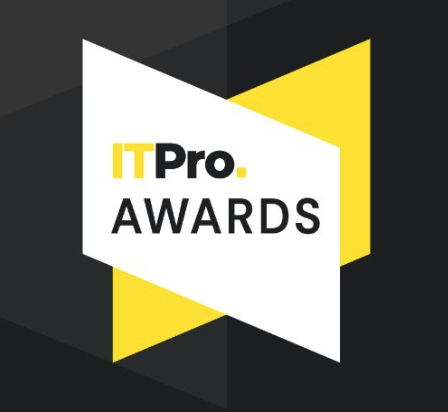Mainframe skills shortage putting businesses in danger
Overlooked mainframe skills transfer challenges put mission-critical business operations at risk.


Sign up today and you will receive a free copy of our Future Focus 2025 report - the leading guidance on AI, cybersecurity and other IT challenges as per 700+ senior executives
You are now subscribed
Your newsletter sign-up was successful
Mainframe skills shortages expose rising costs and increased business risks, according to a chief information officer (CIO) survey.
Nearly two-thirds (71 per cent) of those questioned in the US, UK, France and Germany said they were concerned that the looming mainframe skills shortage would hurt their business.
Mainframe application outages cost nearly $14,000 (8,941) per minute in lost revenue according to the survey published by IT performance management vendor Compuware, which sponsored the research by Vanson Bourne among 520 CIOs in enterprises of over 1,000 employees.
"If you've got experts that have worked on your mainframe for 30 years, that's a lot of intellectual property not just about the systems, but also the business," Neil Richard, Compuware European mainframe director, told IT Pro.
The challenges arise when these people retire, where it can take up to three years to fully train a new recruit in an organisation's end-to-end mainframe systems and processes, he added.
If you've got experts that have worked on your mainframe for 30 years, that's a lot of intellectual property.
"Even when you do the knowledge transfer, the pressure to hit deadlines can sometime mean technical documentation doesn't get done for instance, so bits of information can get lost," Richard said.
Sign up today and you will receive a free copy of our Future Focus 2025 report - the leading guidance on AI, cybersecurity and other IT challenges as per 700+ senior executives
Although 79 per cent of CIOs confirmed that mainframe application outages posed a significant business risk, 78 per cent said these applications will remain a key business asset over the next decade.
"The mainframe is still very good for certain things," Richard said. "It is very reliable and can be used to handle large volumes of transactional processes. Distributed IT environments are good for other things. It takes a multi-tier approach.
"Show a 25-year-old who likes intuitive graphical interfaces and drag-and-drop functionality an ISPF [Interactive System Productivity Facility] screen with its panel-driven menus and they'll run a mile."
The study identified rising costs resulting from developer shortages, where nearly half (43 per cent) of mainframe operational expenses are salaries. But 70 per cent of CIOs agreed that cost cutting would expose more risks than rewards.
Specifically, CIOs were concerned the shortages would result in increased application risk (58 per cent), reduced productivity (58 per cent) and more project overruns (53 per cent).
The vendor is warning that every enterprise running mainframes in support of mission-critical operations will have to face the challenge of how to attract new talent.
"Technology can be a way of attracting new talent," said Richard. "It's about finding ways of making it easy for them to use these technologies to get the root cause of an issue."
He added that enterprises should first quantify the size of the problem by examining the age splits within their mainframe workforce and then look for ways to make it more productive so it can do more with less.
To address this ongoing skills issue, IBM earlier this year started collaborating with the Scottish Qualifications Authority (SQA) to provide UNIX and mainframe courses.
A 25-year veteran enterprise technology expert, Miya Knights applies her deep understanding of technology gained through her journalism career to both her role as a consultant and as director at Retail Technology Magazine, which she helped shape over the past 17 years. Miya was educated at Oxford University, earning a master’s degree in English.
Her role as a journalist has seen her write for many of the leading technology publishers in the UK such as ITPro, TechWeekEurope, CIO UK, Computer Weekly, and also a number of national newspapers including The Times, Independent, and Financial Times.
-
 ITPro Excellence Awards winners unveiled
ITPro Excellence Awards winners unveiledIt's time to celebrate excellence in IT. Read on for the full list of winners...
-
 This new mobile compromise toolkit enables spyware, surveillance, and data theft
This new mobile compromise toolkit enables spyware, surveillance, and data theftNews The professional package allows even unsophisticated attackers to take full control of devices
-
 IBM just unveiled its new z17 mainframe – and it's built with AI performance in mind
IBM just unveiled its new z17 mainframe – and it's built with AI performance in mindNews IBM has released the latest version of its mainframe, the z17, aimed at supporting AI workloads and inferencing.
-
 Everything you need to know about Kyndryl
Everything you need to know about KyndrylIn-depth A brief guide to the history of IT infrastructure services provider Kyndryl, including its key products and people
-
 The key requirements of modernization and the role of IBM Power10
The key requirements of modernization and the role of IBM Power10whitepaper Efficient power servers for your data center
-
 The power of IBM Power for SAP HANA and SAP S/4HANA environments
The power of IBM Power for SAP HANA and SAP S/4HANA environmentswhitepaper Greater efficiency, reduced carbon footprint
-
 ITIC 2022 Global Server Hardware, Server OS Security Report
ITIC 2022 Global Server Hardware, Server OS Security Reportwhitepaper Deploy applications safely and securely
-
 Implementing sustainable storage infrastructure
Implementing sustainable storage infrastructureWhitepaper Understand what to look for from vendors and make better storage infrastructure purchasing decisions.
-
 IT best practices for accelerating the journey to carbon neutrality
IT best practices for accelerating the journey to carbon neutralityWhitepaper Considerations and pragmatic solutions for IT executives driving sustainable IT
-
 IBM's new z16 mainframe brings two industry-firsts and quantum-proof data encryption
IBM's new z16 mainframe brings two industry-firsts and quantum-proof data encryptionNews The latest product in its z-series of mainframes is described as a 'game-changer' and has already saved major companies millions in lost revenue
